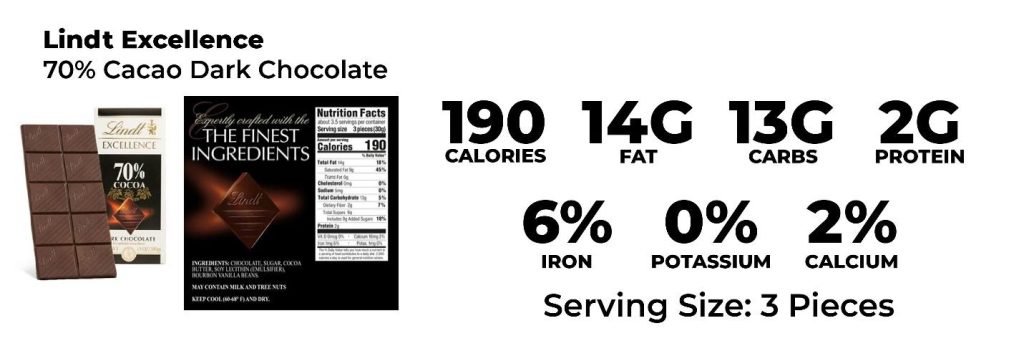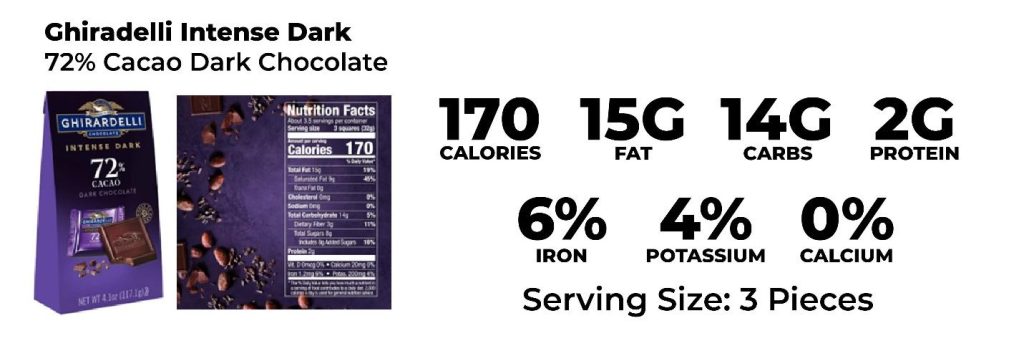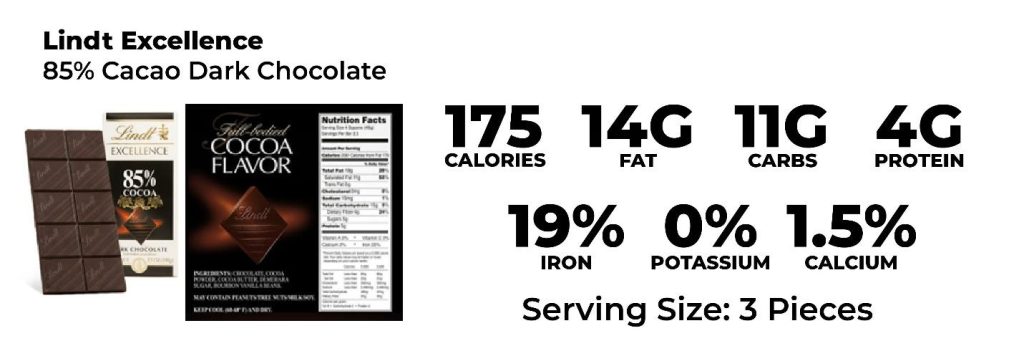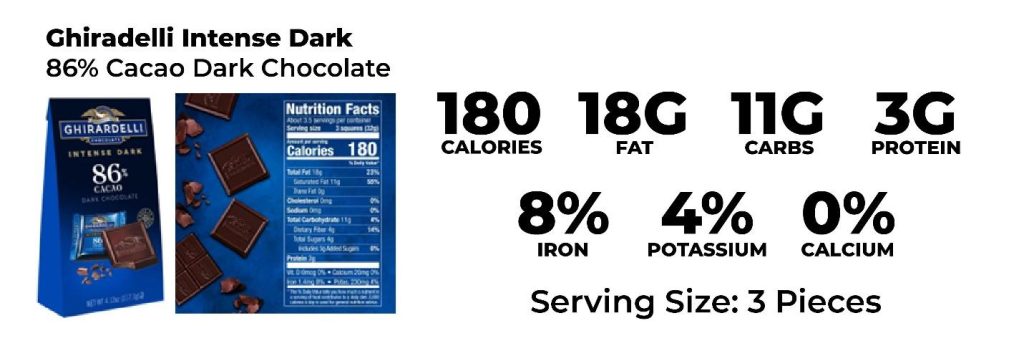Dark chocolate can provide some health benefits when eaten in moderation; however, it is still a significant source of calories and fat so it may not be an ideal snack choice for weight loss. But, if you’re planning to fit a sweet treat into your weight loss meal plan for a special holiday (like Valentine’s Day), dark chocolate can be a sweet tooth satisfying option that also comes with some health benefits.
Don’t get too excited though, that does not mean you can go eat all the dark chocolate you want – the sugars, fats, and calories still count and can quickly negate any of the health benefits when over indulged. However, enjoying a small, controlled portion of the right type of chocolate can curb your sweet tooth while also providing some beneficial nutrients.
So, is dark chocolate healthy? In moderation, it can be!
The Main Three Types of Chocolate
There are tons of different chocolate varieties out there, but they can be broken into three main categories based on the amount of cacao solids in the chocolate.
White Chocolate
White chocolate has 0% cacao. It is made of cacao butter, sugar, dairy product, and vanilla flavoring.
Milk Chocolate
Milk Chocolate is required to have a minimum of 10% cacao in the U.S. So, it’s still mostly cacao butter, sugar, and a small percentage of cacao solids.
Dark Chocolate
There is no legal definition of dark chocolate in the U.S. but it typically contains at least 50% cacao solids. This undefined range means that the nutrients and cacao percentages will vary widely, so it’s important to read the labels and know what to look for. We recommend a cacao percentage between 70-85% for the most health benefits.
What are the Health Benefits of Dark Chocolate?
Dark Chocolate Contains Less Sugar (vs White or Milk Chocolate)
When it comes to chocolate, the percentage of cacao solids is inversely correlated to the amount of sugar added – the higher the percentage of cacao solids, the less sugar it contains. So, when browsing the chocolate bars section, the higher the cacao percentage on the label, the better; however, the higher percentage also means less sweetness and more bitterness. The *sweet* spot (pun intended) is right around 70-85% cacao for the ideal balance of enjoyment + health benefits.
Dark Chocolate is Rich in Antioxidants
Dark Chocolate is rich in antioxidants, including a group of plant-based antioxidants called flavanols. Antioxidants protect cells against free radicals which play a role in various illnesses such as heart disease and even cancer. Dark chocolate contains at least 2-3x more flavanol-rich cacao solids compared to milk chocolate. Flavanols are associated with a lower risk of heart disease. 1,2
Dark Chocolate is Rich in Minerals
Dark chocolate (70%–85% cacao) is rich in certain minerals including magnesium, copper, iron, and potassium. Dark chocolate can provide 36 mg of magnesium per 100 calorie serving – up to 9% of the U.S. recommended dietary allowance (RDA). Dark chocolate can also be a good source of copper and can contain up to 31% of the RDA per 100 calorie serving. Iron deficiency is a common nutritional problem worldwide and dark chocolate provides up to 25% of the RDA per 100 calorie serving. While potassium is not quite as significant in dark chocolate, some can contain 2% or more RDA per 100 calorie serving. 3,4
When it comes to selecting dark chocolate with the most health benefits, typically higher quality, higher percent cacao solids will provide the most healthful minerals. Below we’ve included two common brands to see a quick comparison of the nutritional values depending on the cacao percentage. However, there are tons of brands to choose from and you may find ones with even more of these minerals. So, it’s always best read the nutrition labels in order to compare the nutritional value and serving sizes most accurately – the listed serving sizes may vary across brands.




References
- Di Mattia CD, Sacchetti G, Mastrocola D, Serafini M. From Cocoa to Chocolate: The Impact of Processing on In Vitro Antioxidant Activity and the Effects of Chocolate on Antioxidant Markers In Vivo. Front Immunol. 2017 Sep 29;8:1207. doi: 10.3389/fimmu.2017.01207. PMID: 29033932; PMCID: PMC5626833.
- American Heart Association News. (2019, February 12). Are there health benefits from chocolate? Heart.org. URL: https://www.heart.org/en/news/2019/02/12/are-there-health-benefits-from-chocolate#:~:text=Most%20dark%20chocolate%20is%20high,high%20blood%20pressure%20in%20adults
- Katz DL, Doughty K, Ali A. Cocoa and chocolate in human health and disease. Antioxid Redox Signal. 2011 Nov 15;15(10):2779-811. doi: 10.1089/ars.2010.3697. Epub 2011 Jun 13. PMID: 21470061; PMCID: PMC4696435.
- Cinquanta L, Di Cesare C, Manoni R, Piano A, Roberti P, Salvatori G. Mineral essential elements for nutrition in different chocolate products. Int J Food Sci Nutr. 2016 Nov;67(7):773-8. doi: 10.1080/09637486.2016.1199664. Epub 2016 Jun 26. PMID: 27346251.




